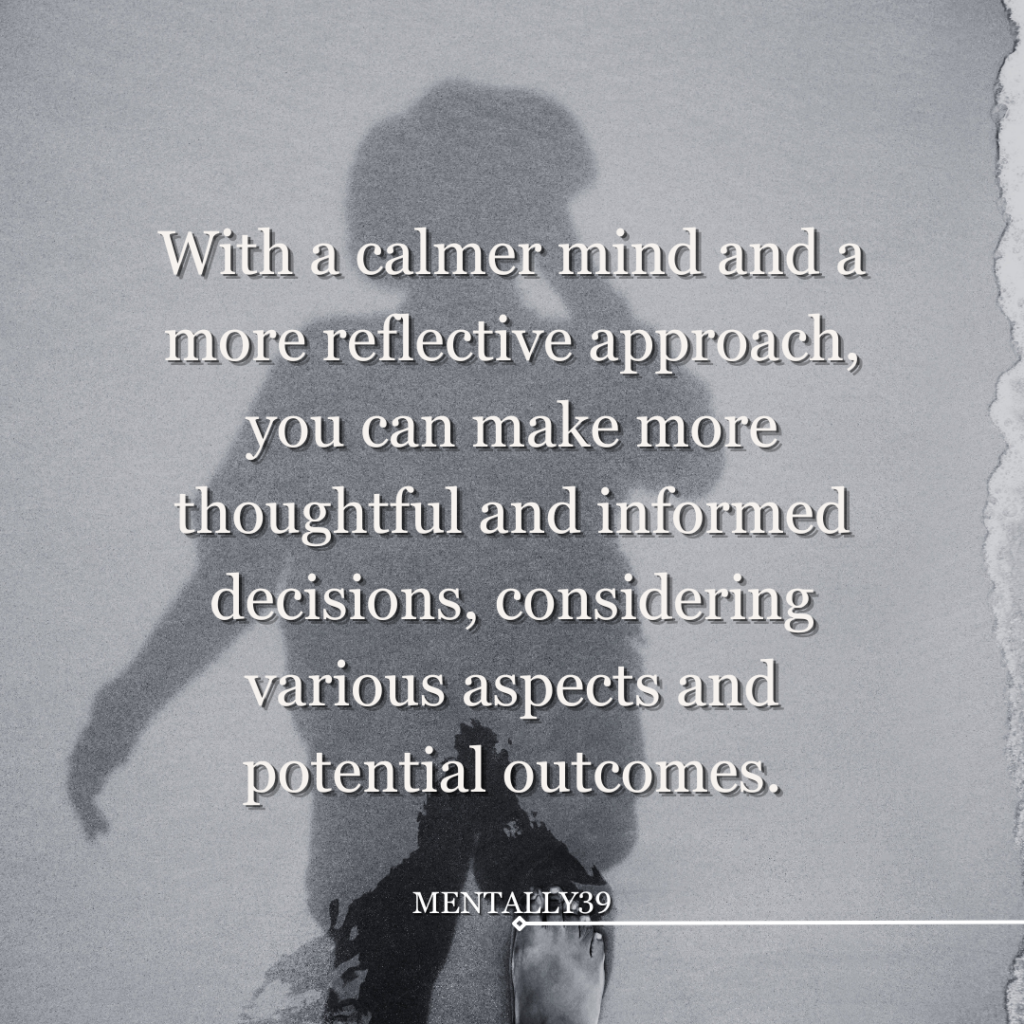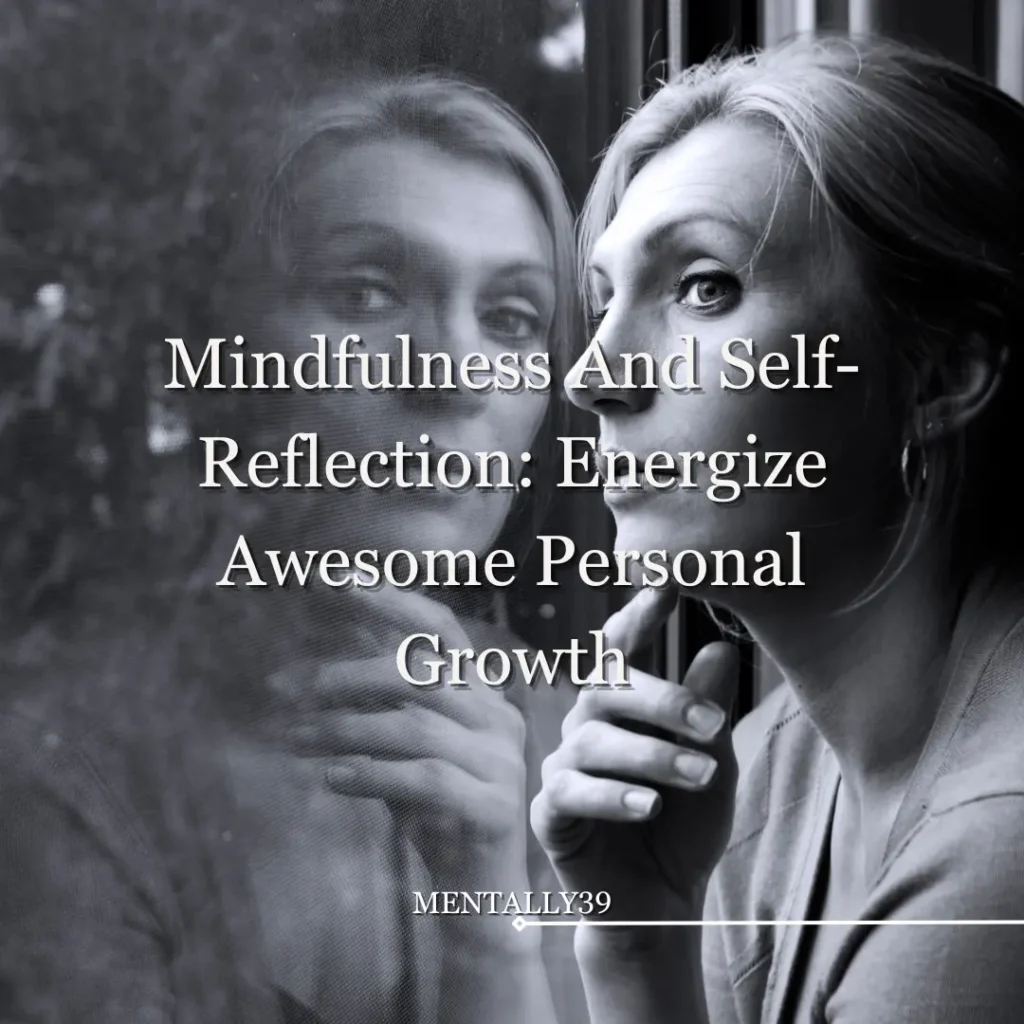Personal development begins by turning our attention inward. By developing mindfulness and self-reflection skills, we can center our focus on the present. These practices act as a guide for self-discovery and for unlocking our potential. When we do these exercises routinely, we can enhance our self-awareness and clarify our life’s purpose.
Table of Contents
Understanding Mindfulness and Its Impact on Personal Growth
Mindfulness is about focusing on the present moment without judging anything. It means noticing your thoughts, feelings, and sensations without getting lost. This simple practice helps us understand ourselves better and how we connect with the world around us.
When we live mindfully, we notice our automatic thoughts and actions. This awareness is key, you can’t grow if you are not aware. It helps us make choices that fit our values and enhance our well-being.
The Essence of Mindfulness in Everyday Life
Find small moments for change, like focusing on breathing or savoring food. Mindfulness helps avoid dwelling on the past or future worries. It trains us to be present, appreciate moments more deeply, and find joy in daily life. This shift enhances concentration, reduces emotional reactions, and promotes peace and happiness.
How Mindfulness Fuels Personal Transformation
Mindfulness is helpful for individual growth. It lets us observe thoughts and feelings without judgment, which helps us manage emotions by choosing reactions. Mindfulness encourages self-compassion by paying attention to inner thoughts and promoting kindness. Self-compassion is crucial for mental health and for accepting flaws while pursuing goals.
Practicing mindfulness guides self-discovery, making space for positive changes and enhancing self-awareness. It improves emotional well-being and life satisfaction, leading us to be a better version of ourselves.
The Art of Self-Reflection: A Tool for Self-Discovery
Self-reflection is when we look inside ourselves to think about our thoughts, feelings, and actions. This helps us better understand our motivations, values, and goals. It means pausing from our busy lives to think deeply about the experiences that have made us who we are.
Exploring our inner selves can teach us important things about our strengths and weaknesses. It can also show us patterns in our thinking and behavior that may stop us from achieving our full potential.
Techniques for Effective Self-Reflection
Engaging in reflection means making time to think about ourselves. We should be ready to face both the easy and hard truths about who we are. Here are some simple techniques that can help:
- Journaling: Writing down your thoughts and feelings often helps you see your experiences over time. It can show you patterns in your life and help you understand your emotions better.
- Mindful Meditation: Doing deep breathing and mindfulness meditation can help calm your mind. This makes room for thinking clearly and enables you to reflect on yourself more effectively.
- Gratitude Exercises: Looking at what you are thankful for can change your perspective. This positive focus makes it easier to look back on your gratitude experiences, whether good or bad.
Self-Reflection and Its Role in Overcoming Challenges
Life has many challenges, and how we handle these challenges shapes who we are. Stopping and looking back at how we are doing is critical in overcoming setbacks and building resilience. When we think about how we react to tough situations, we can find patterns that may be blocking our progress or adding to our stress.
Self_reflection also brings clarity. It helps us understand what we can learn from difficult times. Instead of seeing setbacks as failures, we can see them as opportunities to grow and learn. This change in view is critical for building resilience. It helps us face future challenges with a positive and proactive attitude.
By examining ourselves honestly, we can learn about our coping methods and find healthier ways to deal with hard times. Self-reflection is an ongoing journey of discovering who we are. It helps us learn from our errors, foster self-compassion, and emerge stronger and more resilient from challenges.
Integrating Mindfulness and Self-Reflection into Your Routine
Integrating mindfulness and reflection into your life does not mean you have to change everything. It is about making small changes in your daily routine. You can start by setting aside a few minutes each day for mindful breathing, practicing gratitude, or writing in a journal about your experiences.
These small moments of thought and reflection will add up over time. They can have a strong impact on your life. As you feel more at ease with these practices, you can slowly spend more time on self-reflection. This will help you understand yourself better and you will grow more.
Practical Steps to Cultivate a Mindful Reflection Practice
Cultivating a regular practice of mindful reflection takes intention and commitment. Still, the benefits are much greater than the effort you put in.
- Set a Goal and Schedule Time: To make this consistent, set a simple goal, like practicing for five minutes each day. Pick a time that is best for you. This could be in the morning, during your lunch break, or just before you sleep.
- Create a Calm Space: Find a quiet and comfy spot in your home where you can focus on yourself and your thoughts without distractions.
- Start with a Simple Technique: Choose a technique that feels right for you, like deep breathing, gratitude journaling, or mindful walking.
Creating a Personalized Mindfulness and Self-Reflection Plan
As you learn more about being aware of your thoughts, you can make a plan that fits your goals and helps your personal development. Trying different methods and seeing what works best for you is key.
- Try Different Practices: Try various mindfulness methods, such as body scan meditations, mindful eating, or loving-kindness meditation. Add the ones you find helpful to your daily life.
- Join a Group or Get a Teacher: Consider joining a meditation group or a workshop. You can also seek help from a qualified teacher. Learning from others can give you great support and improve your practice.
Keep in mind that mindfulness and self reflection are about your own journey. The best plan is one you can stick to, and that meets your personal needs and goals.

The Benefits of a Mindful Self-Reflection Journey
Engaging in reflection is a unique journey. It brings many benefits to our mental, emotional, and physical health. When we do this practice openly and with a desire to learn, we become more aware of ourselves. This helps us improve our emotional intelligence. It also allows us to create stronger and more satisfying relationships with ourselves and the people around us.
Also, by combining mindfulness and self-reflection in our daily lives, we can handle stress better. We learn to face challenges with more resilience, which helps us live life with more clarity and purpose.
Enhanced Mental and Emotional Well-being
Mindful introspection is key to good mental health. When we take time to think about our thoughts and feelings, we can find the reasons behind stress, anxiety, or negative thoughts. This understanding helps us build healthy coping methods and improves our emotional resilience.
Also, practicing mindful self-reflection helps us manage our emotions better. By looking at our feelings without judging them, we can break free from automatic reactions and choose how to respond to tough situations.
Better emotional intelligence helps us manage our relationships. It allows us to show more compassion for ourselves and others.
Improved Relationships through Greater Empathy and Understanding
Mindfulness and self-reflection are great ways to cultivate empathy and compassion, which are essential for building strong and meaningful relationships. When we notice our thoughts and feelings, we start to see how our actions and words affect others.
Also, being kind to ourselves helps us be kind to the people around us. If we accept our own flaws with understanding, we find it easier to forgive and accept the flaws in others.
This caring viewpoint helps us communicate better and solve conflicts positively. This can lead to more peaceful and satisfying relationships with those we care about.
Starting a journey of mindfulness and self-reflection can help you grow as a person. Adding these habits to your daily life can make you feel better mentally and emotionally. This can also help you relate to others and face challenges with more understanding. Mindfulness helps change your life, while self-reflection enables you to learn about yourself and become stronger. Make a plan that works for you and take simple steps towards being more mindful. Enjoy the rewards of this journey. This can lead to a better connection with yourself and others. It can help you live a more satisfying and powerful life.
Frequently Asked Questions
What are the first steps to becoming more mindful?
Start by adding small mindfulness activities to your daily life. For example, you can practice deep breathing exercises. Try to focus on the present moment. Cultivate gratitude for what you have. Also, notice your thoughts and feelings without judging them or becoming attached.
How often should I practice self-reflection for personal growth?
People’s time spent on self-reflection can vary. However, it is essential to do it regularly. You can take a few minutes each day or set aside a more extended time once a week. Doing this consistently helps to improve clarity, resilience, and growth.
Can mindfulness and self-reflection help with anxiety and depression?
Mindfulness and self-reflection can help your mental health. They are not a replacement for professional help but can have sound effects. These practices may lower stress levels. They can also improve emotional regulation and help manage symptoms of anxiety and depression.
20+ Years as a Special Education Teacher
NASM Certified Nutrition Coach,
Certified Trauma Informed Trainer
Mindset and Motivation Master Life Coach
